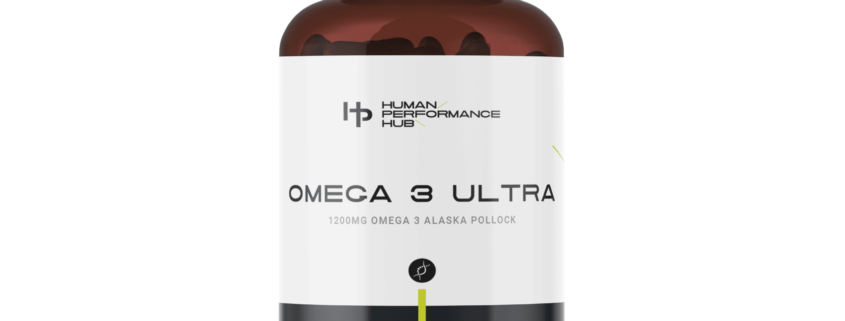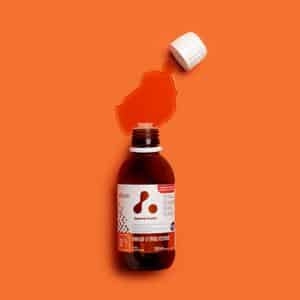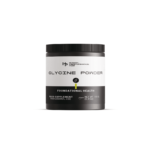Athletes are always looking for ways to improve their performance, whether than be in the gym, on the field, or in their diet. Omega 3 has wide ranging benefits, particularly for athletes, but how much do they need to take to see noticeable results?
So, how much Omega 3 should an athlete take? To improve performance, athletes need to take more than the recommended daily intake of Omega 3 (1.1g-1.6g). This could be up to around 3.5g but can be adjusted for varying effects.
Read on to learn more about how much Omega 3 an athlete should consume, as well as how it benefits their performance, and foods rich in Omega 3.
How Much Omega 3 Should an Athlete Take for Sports Performance?
It is recommended that athletes consume a minimum of 1-2g of Omega 3 per day to see noticeable improvement. However, various studies have found that different doses may have different benefits. For example:
| Dose | Benefit |
| 3.5g over 4 weeks ( in women) | Improved complex reaction time and efficiency.
This supports the theory that Omega 3 may be beneficial for athletes to improve perceptual motor activity. Likewise, it may improve decision making, |
| 1.75g of EPA (Eicosapentaenoic acid) and 1.05g DHA (Docosahexaenoic acid) per day for 3 weeks | Rise in acute-phase proteins occurring after exercise. This dosage may also reduce post-exercise immunosuppression. |
| 3g (with a minimum of 2g EPA and 1g DHA) | Improves physical performance and enhances recovery in athletes. |
Do Athletes Need More Omega 3?
Athletes put their bodies through a lot each and every day, even if they’re serious about rest and recovery. However, essential fatty acids (EFAs) like Omega 3 can help to reduce inflammation and aid in recovery. It may also help to prevent injury.
The average person should consume around 1.1g-1.6g of Omega 3 per day. A number of the studies above recommend that athletes consume more than this to reap the benefits.
Omega 3 and Athletic Performance – How it Works & Benefits
Omega 3 has proven positive health benefits on, among other things, triglycerides, cholesterol values, brain function and the immune system. Other benefits include:
Strength
Studies show that Omega 3 may boost muscle protein synthesis. This increases muscle mass and strength. Likewise, Omega 3, particularly EPA, improves protein metabolism.
Further to this, Omega 3 can contribute to an athlete’s calorie intake. An athlete needs to consume a higher load of calories to replace those that are burned off during training. Omega 3-rich foods or supplements are ideal for this as they are more nutrient-dense than carbohydrates or protein, yet contain a high amount of calories to offset the deficit.
On the other side of this, research also suggests that Omega 3 may prevent the loss of muscle mass. This is particularly beneficial for those that may have suffered an injury or take a short break from training but want to maintain their muscle mass.
Endurance
Some evidence suggests that Omega 3 improves endurance. Omega 3 acts as a vasodilator, increasing oxygen flow during exercise, thus improving endurance. Likewise, other studies suggest that Omega 3 may reduce fatigue.
Recovery
Omega 3 naturally contains anti-inflammatory properties which aid in muscle recovery and help to prevent injury. Consuming a higher amount of Omega 3 (as athletes are recommended to) helps to improve the integrity of cells and cellular function which helps to reduce muscle damage and soreness.
Additionally, Omega 3 is thought to improve sleep – an essential component for performance and recovery.
Learn more about the benefits of Omega 3 and other fish oils in our recent blog.
Omega 3-Rich Foods
If you’re an athlete, you’re likely to be on-board with Omega 3 by now. But, what foods are rich in Omega 3? You probably already know about fish like salmon and sardine, but you can also get Omega 3 on a plant-based diet from nuts, seeds and some oils.
- Fish such as anchovies, salmon, sardines, mackerel and herring
- Oysters
- Seeds such as chia seeds, flaxseeds and hemp seeds
- Nuts such as walnuts
- Soybeans
- Vegetables such as Brussels sprouts
Can You Supplement Omega 3 for Sports Performance?
Omega 3 can easily be supplemented. Cod Liver Oil is a great place to start and is commonly recommended by Doctors, Nutritionists and other healthcare professionals alike.
If you want to take things further, Human Performance Hub stocks a range of Omega 3 supplements to help improve your performance.
At Human Performance Hub, we only sell premium Omega 3 supplements rich in Eicosapentaenoic acid (EPA) and Docosahexaenoic acid (DHA) – essential fatty acids.
EPA is beneficial for supporting a healthy brain, balanced emotions, skin health, maintaining normal cholesterol levels and modulating the inflammatory response. Meanwhile, DHA supports proper brain development and function, visual acuity, maintenance of normal triglyceride levels and blood pressure, eye development and healthy pregnancies in women.
Additionally, our supplements contain Omega 3 in the triglyceride (TG) – the same way they naturally occur in fish – rather than ethyl ester (EE) form which is typical of mass-produced, mass-marketed Omega 3 supplements. They are less expensive to produce, but also less beneficial than TG Omega 3 and are harder for the body to digest.
Finally, our Omega 3 supplements include mixed tocopherols, which protect these fragile oils from oxidation and rancidity. They also ensure purity and to maximise the removal of metals, pesticides, PCBs, and other contaminants
Omega 3 Ultra Softgel Capsules
Each 2-softgel capsule serving contains 400 mg of DHA and 600 mg EPA. This is an ideal choice for athletes that require a more aggressive application of Omega 3.
ATP Lab Omega 3 Triglyceride Fish Oil
Contains a high concentration of Omega 3 (2088 mg EPA and 1044 mg DHA) which is particularly beneficial after periods of intense training and to help resolve associated aches and pains.
Do Omega 3 Supplements Go Off?
Omega 3 supplements can go rancid and oxidise. This means that the fatty acids in Omega 3 react with the oxygen in the atmosphere. This process takes place through the action of Free Radicals which attack the fatty acids and changes them at a structural-molecular level.
When this process takes place, you might notice that your Omega 3 supplements start to have a rancid fish smell. This tends to be more prevalent in liquid supplements.
Unfortunately, once Omega 3 supplements start to oxidise, research suggests that this oxidation may interfere with their intended benefits (i.e. they will become less useful for athletic performance).
Final Thoughts
Omega 3 is beneficial for everyone; it is highly recommended that people consume a minimum of 1.1g-1.6g of Omega 3 per day. However, for athletes seeking to improve performance, they need to consume more Omega 3 per day – potentially up to 3.5g per day.
This is thought to provide benefits such as strength, endurance and recovery, alongside improved reaction times, better decision making, and prevention of loss of muscle mass.
Take a look at the range of Omega 3 and fish oil supplements at Human Performance Hub today.




